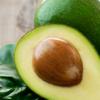Site and soil
Site selection is of prime importance, choose a sunny spot, a distance away from other trees, with deep and well drained soil.
Avocado trees are highly susceptible to both water logging and Phytophthora root rot disease, any practice that will improve the soils drainage rate can make all the difference with your successful avocado growing. Add base fertilizers (lime, gypsum, phosphate) if needed.
Planting
Avocado trees respond very well to heat, with warm soils promoting optimal root growth. For this reason, we recommend planting between mid October and mid March. Planting outside these periods is possible but extra care to protect from frosting and maintaining leaf quality is necessary.
If trees are not planted straight away then ensure they don't dry out, by watering thoroughly a minimum of once per week.
Always pick up your potted tree by the bag and NEVER by the trunk.
Dig a hole slightly deeper and wider than the bag. Mix some well-rotted compost, or potting mix with some of the soil you removed, and then put it back into the hole - this will encourage the new roots to grow and help with drainage. Check that depth of the hole - place your tree in its container in the hole, the level of the soil in the container should be about 25 mm above the top of the hole.
Place a strong wooden stake firmly into the hole, about 20 cm away from where the plant will sit. One planted tie the tree to the stake. Two to three weeks after planting you might have to loosen the ties so they don't damage the trunk.
Water before planting to ensure the area is moist at planting time.
Extreme care is needed when removing the Avocado from the plastic bag as the roots of your new avocado trees are very brittle and break easily - DO NOT pull the tree out through the top of the bag! And NEVER TEASE OUT THE ROOTS of trees before planting.
Here's how to plant your tree ... take a sharp blade and cut around the base of the bag and remove it, now sit the tree (still with the bottomless bag in tact) in the hole, then slit the bag half way up both sides from the bottom up and peel the plastic upwards - cover with soil to this level - gently pressing the soil into place around the plant. Now cut the remainder of the bag and remove it completely - cover the with the top soil, gently pressing the soil into contact with the root ball from the sides towards the center. Do not tamp the soil down with your feet.
Check the depth again ... The top of the nursery potting mix should be slightly above (25 mm) the surrounding soil level - if buried too deep, this may result in collar rot and planting too shallow will expose the un-planted stem and roots to sunburn.
Protect tree with a wind break box of 1.2 meter square and 1.8 meters high. This height will allow growth for the first eighteen months. Shelter should be erected so as to also protect from rabbits and hares.
Aftercare
BEWARE: more trees die because of too much water than too little - they can literally drown! When we say too much we mean too often! Do not be panicked into watering because the tree is wilting during the day-the tree is simply having difficulty drawing enough water to keep itself cool. Rather examine morning or evening for a better visual indicator.
Mulch trees well to increase the soil organic matter, improve the soil structure, reduce evaporation and fluctuations in root temperature. Keep the mulch away from the stems to avoid collar rot; however, mulch can be used to cover newly exposed roots.
Foliar feed with Nitrosol every 4-6 weeks.
In addition, granular fertilizers can be applied to the soil 40 cm around the stem, being careful to avoid contact with the stem.
Weeding is important to prevent competition with the avocado tree roots. Hand weed an area 1 meter diameter around the trees. Herbicides are not recommended at this stage anywhere near the root zone. Avocado feeder roots can be very close to the surface and even grow up into the mulch so don't risk exposing the tree to herbicide.
Regularly inspect trees for pests. Bugs to watch for are Grass Grub and Fullers Rose Weevil can which can start feeding on plants the night of planting. Also pay attention to Leaf roller Caterpillar, Thrips and Six Spotted Mites.
If planting in a cold region it is necessary to protect the young trees against frosts.
It is recommended to remove all flowers for the first 18 months as these will compete for limited tree reserves. If trees are particularly strong (lots of vegetative growth is apparent) consider leaving the flowers and fruit on.
Remove any shoots that develop below the graft union as soon as they are seen to be pushing out. These are mostly found to grow in spring.
